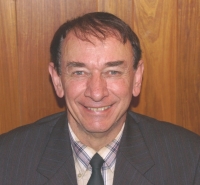|
|
Waste Management: Malcolm Styles, the Principal of EmStyles is a leading practitioner in waste management. Malcolm was responsible for the process of investigating, planning, concept designing, advocating and implementing the calling of tenders and construction supervision of a modern landfill at Castlemaine in central Victoria. This was the first landfill to be constructed outside metropolitan Melbourne to accord with the requirements of the State Environment Protection Policy on the siting and management of landfills as required on amended legislation at the time. It was a unique design. It was designed to re-establish a despoiled ridge line that had been destroyed by many years of gold sluicing. It also incorporated a ‘rolling buffer’ to allow for residential development to occur as the cells were completed. The contract let was a quality assurance contract with hold points, as well as allowance for the use of non-conformance approaches by the contractor in order to attain optimised outcomes. Existing clays on – site were subjected to pilot modification processes in order to reach required permeability standards. The pilot was successful and adopted for the liners both for the cells and the leachate pond, thereby saving the community considerable expense. Malcolm’s efforts and work were recognised by his peers and he received the Leonard Cheffers Engineering Excellence Award for the project. At the Rural City of Wangaratta, Malcolm helped lead a Best Value service review for Wangaratta’s waste management services. This was undertaken in accordance with the Best Value (Principles) Act 1999 (Victoria). The review included a number of community representatives. Surveys were also undertaken using a random sample of 1200 households to gauge what the local community thought about various ideas to improve the service delivery as well as improving recycling and minimisation of waste streams. Best practice was investigated by the team about collection systems, collection and end-product manufacture and marketing of green and organic waste, hardwaste collection services, and transfer stations. The Best Value service review led to significant changes in the delivery of the service. The weekly 240 litre garbage collection service was changed to 120 and 80 litre mobile garbage bins. The 60 litre recycling kerbside fortnightly crate service was changed to 240 litre mobile co-mingled recycling bins fortnightly kerbside pick-up. The compulsory garbage and recycling services were extended to cover the rural areas of the municipality. A waste wise education strategy was introduced, and the recycling contractor actively participated in the implementation of the strategy. Malcolm had earlier been responsible to advocate for and implement the closure of a number of rural landfills and replace most of them with transfer stations. Malcolm was an active member of the early north-eastern cross-border regional waste management group which eventually was replaced with a Victorian body called ‘NevRwaste’. |
